#nature writing
Text
Walking itself is the intentional act closest to the unwilled rhythms of the body, to breathing and the beating of the heart. It strikes a delicate balance between working and idling, being and doing. It is a bodily labor that produces nothing but thoughts, experiences, arrivals.
Rebecca Solnit, Wanderlust
#book quotes#rebecca solnit#walking#walking in nature#books and libraries#nature quote#nature writing#outdoor life#wanderlust
862 notes
·
View notes
Text

“Peonies” by Mary Oliver
#light academia#poetry#dark academia#books#literature#writing#quotes#quote#Mary Oliver#poet#classic#classic poetry#classic literature#naturalist#nature#nature writing
213 notes
·
View notes
Text
#good news#environmentalism#nature#nature writing#natural world#people of color#writers of color#environment#writing#art
126 notes
·
View notes
Text
"The month of half summer, half autumn. Half sophistication, half barbarity."
~ John Lewis-Stempel, Meadowland: The Private Life of an English Field, "September"
#john lewis stempel#quotes#nature quotes#nature writing#september#september quotes#autumn#autumn quotes#fall quotes#dark academia#dark academia aesthetic#dark academia quotes#dark academism#literature#literature quotes#lit quotes#literary quotations#book quotes#literary excerpts#book quotations#quotations#book excerpt#e
172 notes
·
View notes
Note
I've recently moved from the city to the country with my family and want to write a memoirs based on my experiences with nature. Do you have any tips on nature writing? I don't want to write fiction, but i'm not sure how to make non-fiction interesting.
We've actually got a great series of resources in the Reading Room on all types of non-fiction writing, created for us by a commissioning editor from Penguin Random House! Here's the one specifically on nature writing:
The entire series is well worth reading, and she also created a completely free non-fiction book proposal course for us too, which will teach you what a book proposal needs to include for you to best pitch to publishers.
#writing non fiction#nature writing#non fiction books#writers#creative writing#writing#writing community#writers of tumblr#creative writers#writing inspiration#writeblr#writerblr#writing tips#writblr#writer stuff#writers on tumblr#writers corner#helping writers#writing courses#help for writers#tips for writers#how to write#learn to write#writer#writing advice#writing resources#writers and poets#resources for writers#writing stuff#on writing
20 notes
·
View notes
Text
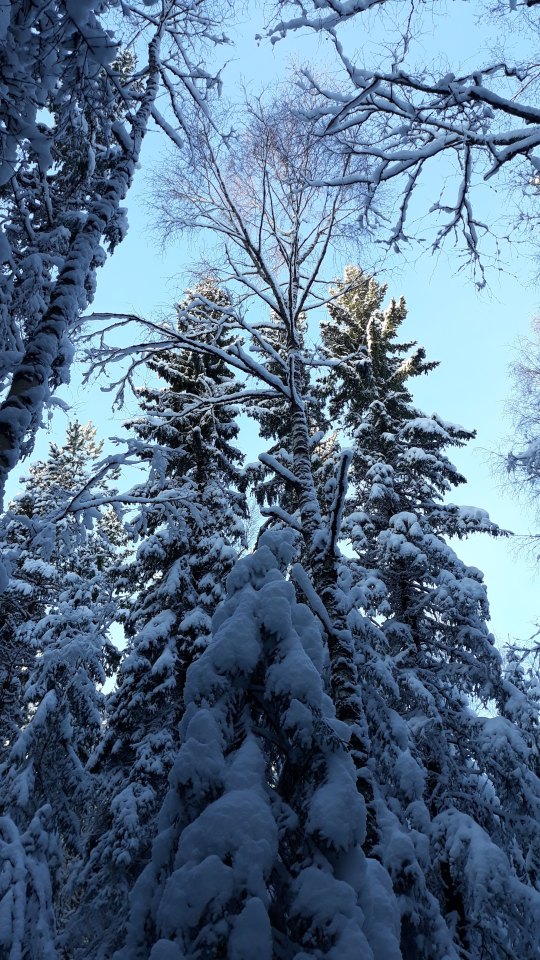
The tranquility of nature dispels the worries, the chirpy trills of the crested tit make the mind light as air
The cold penetrates the skin and transforms into swirling heat, stronger
Turn the perspective upside down and let it skitter up the tree trunk like the squirrel, respectfully; spruce, what can you teach me?
#nature#nature appreciation#mental health#nature writing#my writing#photography#nature photography#my photography#forest#trees#snow#winter#finland
26 notes
·
View notes
Text
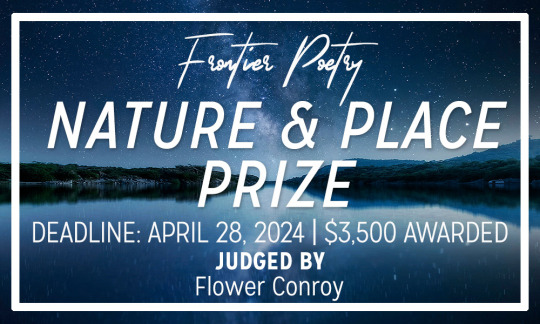
"In our pursuit of gentleness, nostalgia, and a reimagining of “home,” Frontier Poetry is reviving the Nature & Place Prize....We’re looking for poems rich and robust in language, technique, and form that pay homage to the natural world and all of the small marvels that occur in nature. We’re also interested in poems that observe geography and the landscape of home. Frontier Poetry warmly encourages poets of all backgrounds, identities, and ethnicities to enter.
The first-place winner will receive $3,000 and publication. Second- and third-place winners will receive $300 and $200 respectively, as well as publication. All shortlisted writers will also be considered for paid publication in New Voices."
FYI for the nature writing crowd! Maybe this year I'll actually write something in time to submit.
23 notes
·
View notes
Text
She dwells
frequently upon the
beauty and the
melancholy of
nature.
Virginia Woolf
#virginia woolf quotes#virginia woolf#literature#spilled thoughts#poetry#words#poems and quotes#poem#quotes#lit#nature#nature quotes#nature writing
55 notes
·
View notes
Text
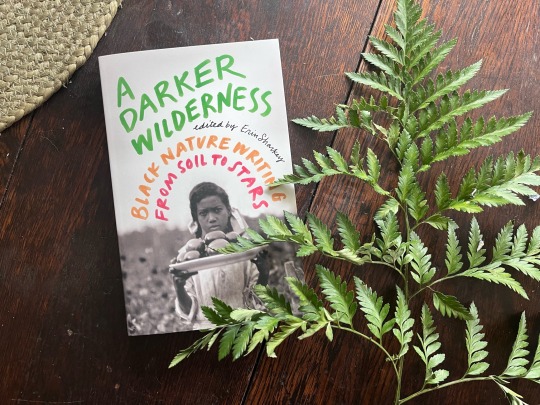
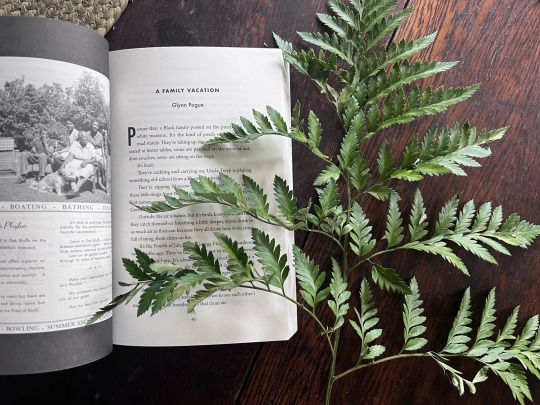
📖 A Darker Wilderness: Black Nature Writing from Soil to Stars edited by Erin Sharkey
#godzilla reads#a darker wilderness#Erin Sharkey#black nature writing#black authors#nature writing#nature books#reading#books#booklr#bookworm#bookish#book blog#bibliophile
108 notes
·
View notes
Text
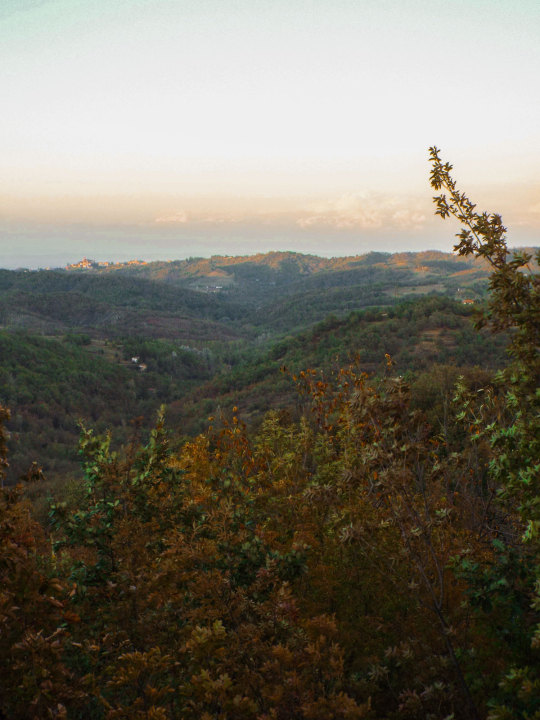

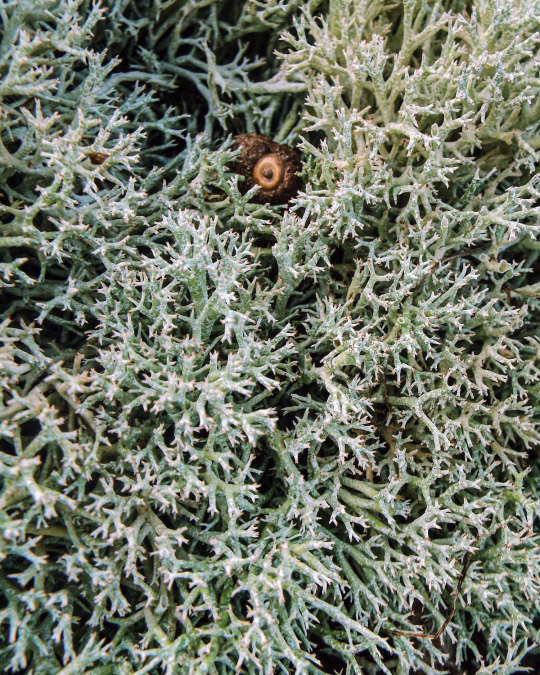
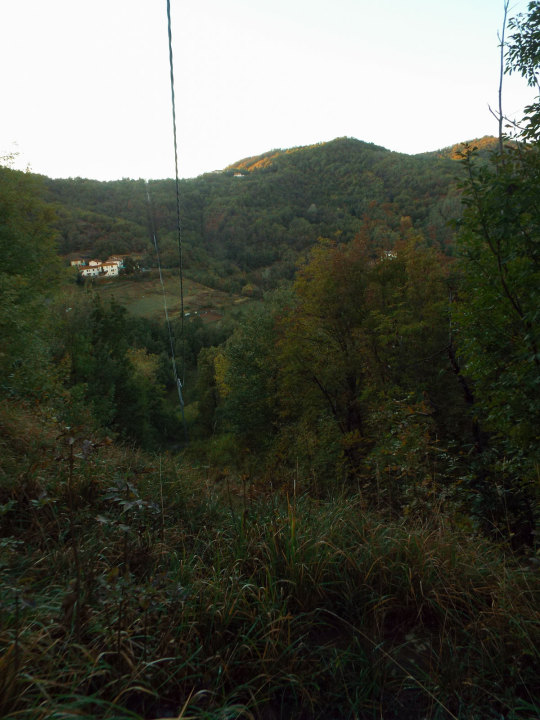
The vastness of empty space
and the tiniest crowded details
this is all me.
The clear sky
and the shadows,
the golden clouds
and the dark undergrowth.
And there's an acorn
inside me,
that the whole of that protect and nourish
in a soft bed.
Keep it safe,
for it will make
the sky clear
the shadow cooler
the clouds more golden
and the undergrowth smoother.
[20.10.2023]
#wood portraits#poetry#my poetry#writeblr#artists on tumblr#photography#forest#woods#nature#nature aesthetic#naturecore#universe#dark academia#light academia#woods aesthetic#my pics#writers#writers on tumblr#nature writing#spilled ink#trees#light#countryside
27 notes
·
View notes
Text
Book Progress!
So now that it is my winter break from teaching, for the next few weeks I am prioritizing working on the manuscript of The Everyday Naturalist as my main concern, instead of just writing in little fits and starts as I have been over the past couple months. In spite of yesterday being full of errands and interruptions, I managed to get a few more hours of writing in. I've completed my initial draft of the first chapter on why we need everyday naturalists, and popped the wordcount over the 10,000 word threshold (I'm starting today at 10,500.) Holiday happenings are going to mean I won't have as many put-my-head-down-and-just-write days as I want until the start of the new year, but I'm happy with my progress so far.
I'm diving into the next chapter, which is on the history of nature identification in western science. It's going to be the toughest one for me to write just because there's so much research involved, but I've been doing a fair amount of reading and looking for resources so I'm not starting empty-handed. I'll have a lot more fun with the how-to chapters after this, but for now it's time to get into some crunchy history.
#The Everyday Naturalist#naturalist#natural history#nature#nature writing#writing#author#book#writer#nonfiction#nature identification
14 notes
·
View notes
Text
The President in Washington sends word that he wishes to buy our land. But how can you buy or sell the sky? The land? The idea is strange to us. If we do not own the freshness of the air and the sparkle of the water, how can you buy them? Every part of this earth is sacred to my people. Every shining pine needle, every sandy shore, every mist in the dark woods, every meadow, every humming insect. All are holy in the memory and experience of my people.
Chief Seattle, in a letter to the U.S. Government, 1852
#book quotes#native american#nature quotes#chief seattle#literature#books and libraries#nature writing#mythic
149 notes
·
View notes
Text
Deer-shade
The spirits called her Ana'anan-ilre, Deer-shade in their tongue. The elves, when they caught sight of her, called her Cyre-Syvniko, defender of the mountain. The fae called her what she was: a tribute to another world, one before humans, before spirits, before fae, a creature that needed no name.
Her ivory antlers curled up to the heavens, brushing against the undersides of trees. She was not large, compared to a yak or a jaick'klii, but she stood tall. Her eyes sparkled like gold flecks in mud, the pupils within horizontal lines of black. When she stood still, the bovid in her shone bright, wary and powerful.
She wore a tunic of woven cloth, not to cover her nudity, for she had no concept of indecency, but to show her appreciation for the beings that had given her that gift. Beneath the thin fabric, spots of ruddy skin glowed faintly in the cobalt night. When she walked, hooves treading against grey rock, she made no sound.
She wandered the Syvniko mountains, feasting on berries and sweet bark-sap, a guardian waiting for a mistress who had left long ago. The natives left a wide berth around her territory, leaving gifts and offerings to her when they wished their crops and livestock to be protected. She accepted it as her due, for the locals were just as much part of the mountain as the grass and trees were.
That is, until they began leaving children at her borders.
The first was a spirit boy, shuddering in the winter cold. His legs were deformed, twisted and misshapen, his whole body too ethereal, even by the standards of their kind. She knew the child would not survive the night, if she did not take him in.
Figuring that the little-one had gotten lost, she wrapped him in her tunic and carried him to her cave. It was packed with thick moss and dead leaves, and she curled up around the child to keep him warm.
All through the night, he shivered and murmured in his tongue, strange words as twisted as his body. In return, she sang to him, her voice hoarse and rough from lack of use, coaxing him to rest. He cried for food and water, the safety of a mother's arms, and she provided the best she could.
For food, she gave the carnivorous spirit her blood, slitting her wrist on a sharp stick and dribbling the redness down his throat. For water, she warmed snow with bare hands until it melted. But for a mother's love, all she could do was clutch him tighter.
When dawn came, the boy had stopped moving, the thrumming of his soul stilled. She did not know grief, but she felt loss anyway. As the sun crested her mountain's peak, showering them all in dawn's dew, she set to giving him a burial.
With her long, nimble fingers, she clawed out a shallow dip. With a rock, she broke his skin and let the ectoplasm fill the hole, freeing his soul. When that was once, she laid her tunic atop his remains and murmured a prayer, something she had seen a spirit priestess use long ago. By the time she had filled his grave and stacked up a cairn, the sun had set.
As she wandered the night, plucking branches idly from the trees and weaving it into a crown, she came across another child, a changeling fae. Its antennae coated with frost, wings crumpled and four arms wrapped tightly around her. When their gazes met, the littler-one stumbled to its feet. It had not the strength, however, and simply collapsed back onto the ground. “Old one,” the girl whispered. “Momma told me to find you.”
She paused and looked at its state. Another child wandered into her forest, this time at an elder's behest. Had it merely meant to leave a gift at her doorstep, and gotten lost en route? Gently, she lifted the littler-one up into her arms. The changeling nuzzled her skin, pressing a cold nose into her mane of dark hair.
This time, she did not bring the cold child to her cave. Instead, she made the trek to a spring, where hot water ran. It lay high in the mountains, near the summit, and she kept through the darkness, feet sure from an eternity of patrolling. The whole while, the child whimpered in her arms, clinging to consciousness wholeheartedly.
When they reached the spring, she set the child in the pool and bathed away the frost. The changeling’s breathing grew deeper as life returned to it. “Old one,” it murmured. “Momma does not want me. Will you look after me?”
She looked down at the littler-one. Her strange eyes softened, and she nodded. “Yes,” she murmured, and stroked the child's soft hair.
What could cause a mother-fae to abandon her child to the cold? She did not know whether to look for the littler-one's father or simply keep it. She did not know how to find a Fae, in any case. They were a wandering people, and tracks that even one such as she could not follow.
So keep it she would.
When the child had rested enough, they dried themselves off with leaves and old heather, and the littler-one clung to her back like a baby vachi-se, wings aflutter.
She was tired, bones weary with sorrow and exertion, but she began her usual rounds. The air was wrong, the snow disturbed by elven feet. This time, it was an infant in a basket, with nothing but a thin blanket, its sharp ear-tips black with frostbite.
She did not understand why the infant had been left there. This was no waylaid child, no accident. The littlest-one had been abandoned, all alone, nobody to protect it.
Anger rose in her chest like a spark in dry grass. Picking up the basket, she adjusted the fae-ling behind her. “Must go,” she murmured. “Save child.”
The little changeling poked its head over her shoulder sleepily. It let out a little gasp when it saw the infant. “It's a baby elf,” it exclaimed. “I've never seen a baby elf before. It's got two arms.” The littler-one paused. “Are we going to find its parents?”
She nodded. The fae-ling made a squeal. “Can I come along?” She nodded again. Without waiting for the littler-one's response, she stepped beyond her lands and into the New World. Bad enough that the spirit boy had died, that the fae-ling would never find its parents. This? This had to stop.
The scent of smoke filled her nostrils, harsh and unfamiliar. Her cloven footprints grew deeper as she began running, knowing she had little time to get the infant to its home. Behind her, the fae-ling clung on for dear life, squeaking like a lemming whenever she made a leap.
She dared not slow down, for fear it would be too late. Already, the elf-ling would be permanently harmed, and it was beyond her to repair the damage. Healing such severe wounds was the prerogative of the New World, not her kinden.
Her footsteps were sure, bounding down the mountain without so much as a stumble. It had been long, as new-people counted such things, since she had visited to elf-town. Dozens of generations had grown and died since she last wandered its streets. She could only hope the town had not dissipated, as they seemed to do all too often.
Prelynn was a sleepy town, a waypoint for traders and adventurers, home to warm hearths and smoky inns. She came upon the it in a flurry of snow, startling the townsfolk with her sudden appearance. “Child,” she announced in their tongue. “Harmed. Need warmth.”
A few elves crossed their shoulder and murmured words of protection against evil. Some more turned away, avoiding her gaze. Only a single brave soul, a girl-child, came forth. “My parents will take you in,” the girl announced. “You are cold, yes? Come, we have a fire.”
The fae-ling poked its face from where it was huddled, and the girl squeaked in excitement. It clambered down from her shoulders, and the three of them set off to the elf-cottage.
The girl's parents were wary, frightened by her strange appearance. She did not care. The littlest-one's breathing came shallow, pink cheeks turning white. Shoving her way into their straw-brick cottage, horns smacking into the doorway and ceiling, she stooped by the fire. “Water,” she demanded. The fae-ling stumbled to its feet to help, only to be gently pushed back down by the elf-mother.
The girl brought a thick wool blanket, warm to the touch, and they wrapped the infant in it. A bucket of ice was warmed over their granite hob, and she daubed the water on the littlest-one's ears. Not once did she look away from the infant. Slowly, blisters formed on the infant, and colour returned to it.
She smiled, and placed it back in the basket. Turning around, she saw the two elf-parents watching her nervously, the girl having been tucked safely in a cot. The male-parent held out another wool garment. “Here,” he said cautiously. “For you.”
She accepted it and handed it to the fae-ling. It barely fit in the coat, sleeves hanging loose, its second set of hands tucked by its sides. “Littlest-one lives,” she proclaimed. “See Council. Now.”
The male-parent sighed. “Please, Cyre-Syvniko, you need to put on some clothes,” he explained. “You're naked.” he pronounced the last word like a sin.
She tilted her head to a side. “Littler-one needed more,” she replied sensibly. “Cold.”
The male-parent nodded to the female-parent, who produced another dress. “Wear it,” the female-parent said. “Then we will take you to see the Council.”
She pulled the dress on, wary of it snagging on her antlers. “Go,” she pronounced, and swung the littler-one back onto her shoulders. It squeed with delight and grabbed her horns.
There was a crowd gathered, elves and round-eared humans and shifters. They barely reached her chest, staring up with wide prey-eyes. As she approached, they skittered aside. The elf-parents followed her hurriedly, like they had inherited their daughter's promise of assistance.
The strange smells and noises hurt her head. This was not her land, not her place to live anymore. This was New-World. But she was not fit to raise an infant, or a fae-ling besides.
She needed these people.
The elf-parents guided her to their Council. It was a massive hall, windows glowing with candle-light. She shuddered at her proximity to fire. In her long life, she had never seen a fire end well. It was a thing of chaos and destruction, and the New-world's attempts to command it was pure folly.
The door hanging caught against her antlers, smacking the fae-ling in the face, and she let out a soft hiss as she stumbled into the hall, discomfited.
An elf-council awaited her, males and females with wrinkled skin and grey eyes sitting on their soft cushions. They had left a space for her. Head bowed, she knelt down, antlers brushing against the rafters. “Council,” she began, before they had a chance to interrupt her, “Children. Yours.”
The head Councilwoman emanated confusion even beneath her veil. “Forgive me, Cyre, but we have no idea what you speak of,” the elder explained apologetically.
She snorted and shook her head, a decidedly bovine movement. The fae-ling clung tenaciously to her horns. Thrusting the babe in her arms forth, she said, “Child. Snow.” Any further words deserted her, her vocabulary exhausted.
The littler-one decided to take over, gabbling in the pidgin that the Fae used to communicate with other species. “Found baby! In snow! Old one found me too! Momma left,” it said, tone darkening at the last sentence.
The Council exchanged a glance. “I see,” the Councilwoman said. “People have been leaving children at the edge of your territory?”
She nodded eagerly, and gave the fae-ling a pat on the head for its good work. It nuzzled her hand with a chitinous cheek.
“Pardon me, but I fail to see the issue here,” the youngest Councillor said, expression unidentifiable thanks to the muesli. “Fae children are none of our concern, and this elf child, while most pitiful, is quite clearly not of Prelynn descent! So we are under no obligation whatsoever to take either of these little ones in.”
She cocked her head to the side. The Councilman had spoken, but the words had no meaning to her. She gave the Councilwoman a meaningful glance.
The elderly elf sighed. “He is right, Cyre,” she said. “We cannot help you. If we were to take in every stray, our town would be overrun in a matter of weeks. Nature is harsh, Cyre. Surely one such as you would know that best. Perhaps you should simply leave the children to be, next time.”
She froze. The wildfire in her chest crackled. “You,” she snarled, feeling magic swirl about her, nature lending itself to her cause. “Abandon. Children.”
Nature did not care that the cubs were not of Prelynn descent. Nature only saw that the young were unprotected. Nature had done everything in its power to encourage them to protect the young. Those that did not protect their young did not deserve to see the sun rise again. Those that did not care for their little-ones were not of the mountain. Those that were not of the mountain would face her wrath.
The ground shook, reverberating with her fury. She stood up. Alarmed, the elves stood up too. There was no need for words, she decided. She had had enough of this ridiculous charade that the New-world perpetrated. With a snarl, she stomped her foot.
A fair distance away, at the little spirit-boy's grave, snow began sliding off the mountain. The avalanche gathered. When the people of Prelynn turned to look, they saw an ominous cloud of white.
She watched, burning cold, as elves ran into the hall to announce the avalanche's arrival. The Council ducked out to check on the incoming disaster. Hurriedly, the head Councilwoman ducked back in. Even beneath her veil, her distress was obvious. “Look, Cyre, we shall take the children in, alright? Just- Stop that thing! It will kill us all,” she said.
She met the Councilwoman's prey-eyes. Weak, she thought sadly. Where had the strength of the wilderness gone? Many generations ago they would have fought tooth and nail to protect their young, and would not have backed down despite the threat of death. This cowing, this obedience, this… New-worldness, she thought sadly. The Old-world was being forgotten, lost to the moons-before. She was being forgotten, left behind. Soon everything she stood for would be dust in the wind.
For a brief moment, she contemplated letting the avalanche take them all, the abandoning New-world town and the abandoned little-ones and the soon-to-be abandoned her. But she was Old-world. That was not the way of Old-world.
She scuffed her foot, making the avalanche cease as quickly as it started. Then she grabbed the fae-ling, heaved it onto her shoulders, and left.
That was the last any New-worlder, mortal or otherwise, saw of Deer-Shade, Cyre-Syvniko, the last true Old One.
#nature writing#writeblr#my writing#writing#short story#creative writing#writerscommunity#fantasy#writing community#spilled ink#This one's got a very different tone from most of what I write#fluff#I guess? My friends called it cute
8 notes
·
View notes
Text
I have seen myself in paintings of the Goddess. I have heard my laugh in the songs of birds. My blood rushes like the river that carves rocks. The air that fills my lungs brings rain and life growing pollen. I am of this earth just as this earth is of me. Kill me if you think it will save you, but I will never die.
#writers on tumblr#writers and poets#late night writing#writeblr#writing#writing idea#writing prompt#poetic#poetry#poets on tumblr#nature writing#nature poem#nature poetry
9 notes
·
View notes
Text
"November is one of my favourite months, with its faded afternoons of cemetery eeriness, and its churchy smell of damp musting leaves."
~ John Lewis-Stempel, Meadowland: The Private Life of an English Field
#john lewis stempel#nature#nature quotes#nature writing#nature books#lit quotes#quotes#literature#literature quotes#literary quotes#literary quotations#literary excerpts#book quotes#quotations#book quotations#english lit#english literature#british literature#british lit#english countryside#british countryside#seasonal quotes#autumn#autumn quotes#fall quotes#november#november quotes#e
60 notes
·
View notes
Text
Sooo... jellyfish.
You may have seen this video circulating recently. The original was posted on Facebook by Scuba Ventures Kavieng; this is a colour-corrected edit [link to the original in the post source, because Tumblr is stupid about external links]. It caused a small stir on the internet after being tentatively identified as Chirodectes maculatus, a monotypic genus known only from a single small specimen captured and filmed in 1997, off the coast of Queensland. (That footage is sadly not available on the Internet.)
If you know a little about jellies, you’ll recognise this as a box jellyfish or Cubozoan. Box jellies are wonderfully interesting animals, and differ from the more familiar “true jellyfish” or Scyphozoa in a number of ways:
a more developed nervous system allowing more complex behaviour, including the capacity to learn from experience
true eyes (with retinas, corneas, lenses, the whole shebang)
the ability, unlike true jellies which mostly drift, to actively propel themselves around obstacles and towards prey
...a concerning trait in an animal most notorious for being extremely fatal to humans. (c.f. Wasp Jellyfish, Viper Jellyfish, the delightfully named Common Kingslayer, Irukandji*) * sting symptoms include excruciating pain and “a feeling of impending doom”, and let’s raise a glass to the researcher who first documented Irukandji syndrome by deliberately testing it on himself, a lifeguard, and his nine-year old son: “Eschewing animal models and laboratory studies (not to mention all common sense), Barnes took the two specimens, and proceeded directly to human experimentation.” please read the article linked in my reblog, it’s hilarious. (A lack of self-preservation is a trait apparently common to all jellyfish scientists - the 2005 article on Chirodectes maculatus notes that it failed to sting, or adhere to, the hand and forearm of an incautious volunteer.)
The point is that box jellies are deeply, deeply cool in every respect except basic body plan, which goeth thusly:
box
tentacle on each of the four lower corners
....and while many cubozoans find that four is not enough and multiply to get 4n tentacles, that’s about it. Ultimately, what you end up with is still just a translucent jelly box with string hanging from each corner, like a very sad, very dangerous piñata.
Compare scyphozoans / "true jellies":
[top to bottom: Pacific sea nettles Chrysaora fuscescens aka windows screensaver, barrel jellyfish Rhizostoma pulmo, sea cauliflower Cephea cephea, moon jelly Aurelia aurita, lion's mane jellyfish Cyanea capillata]
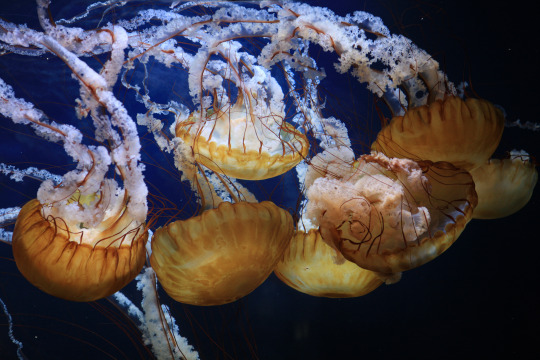
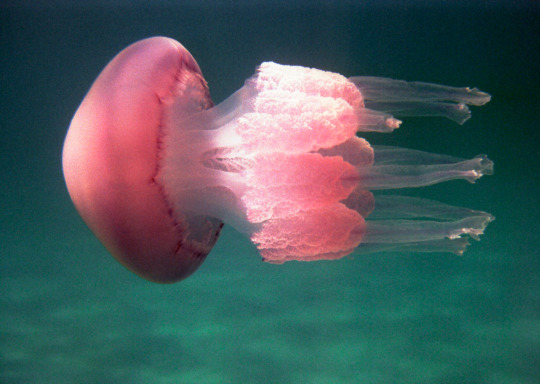

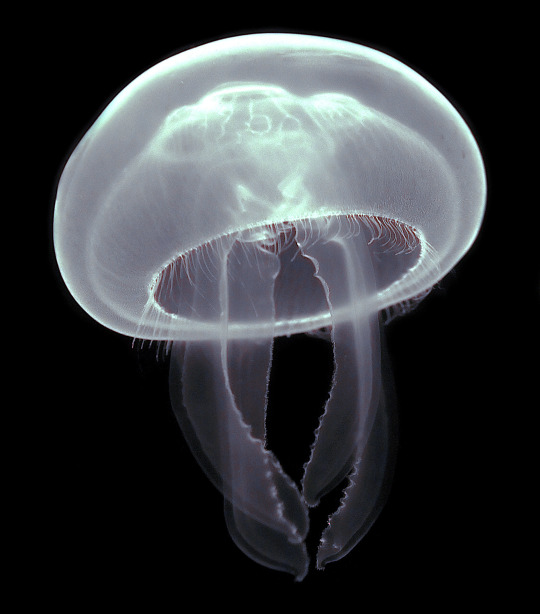

They may not be all that bright, but by god they’re fancy.
Now let's see the box jellies: [Bonaire banded box jellyfish, which rejoices in the name of Tamoya ohboya; sea wasp Chironex fleckeri; Copula sivickisi; Tripedalia cystophora]

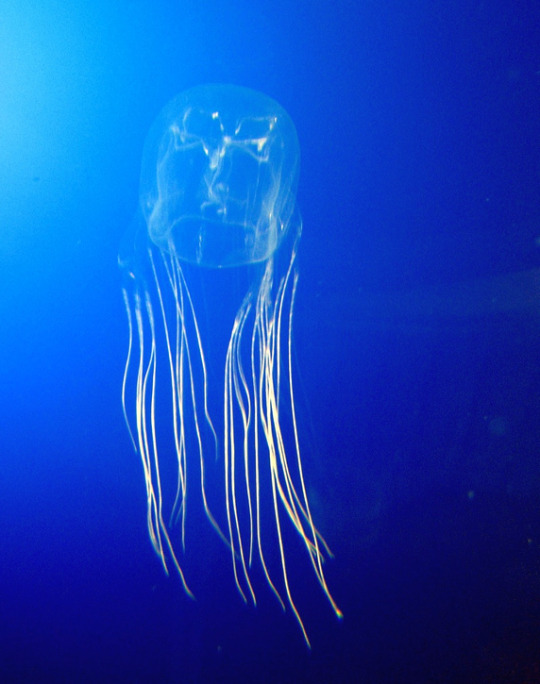
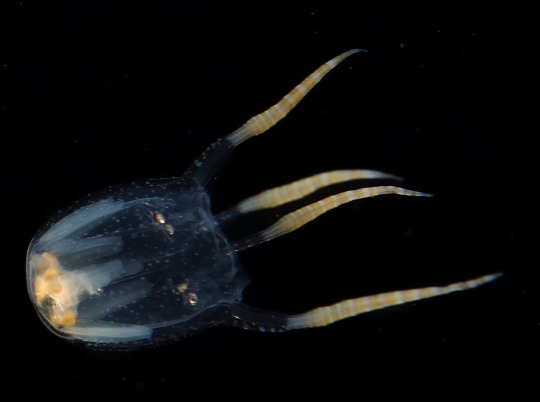

And by cubozoan standards, it is big: according to the diver, "a bit bigger than a soccer ball" (which have a ~21cm diameter), which would make it larger than the 15cm in the original species description.
Where am I going with all this? My point, dear jelly lovers, is that Chirodectes maculatus took a body plan like an inverted plastic bag and made it into the fanciest, most ostentatious chunk of jelly that ever wobbled the seven seas.
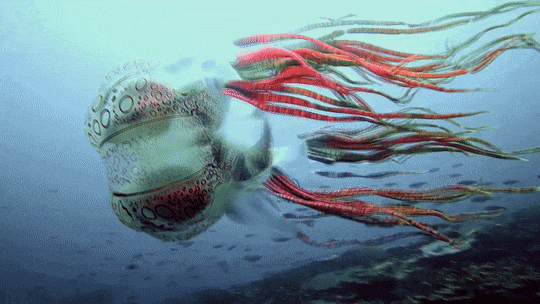
Look at it. It’s like a 1970s lampshade set off to colonise the ocean. And isn't it just fabulous.
Please reblog the linked post for sources and further reading. All images via Wikimedia Commons (licensed with some version of Creative Commons.)
#you may not like it but this is what peak adaptation looks like#there are many benefits to being a marine biologist#being stung by box jellies is not one of them#marine biology#jellyfish#box jellyfish#nature writing#cubozoa#my writings#science!#video
359 notes
·
View notes